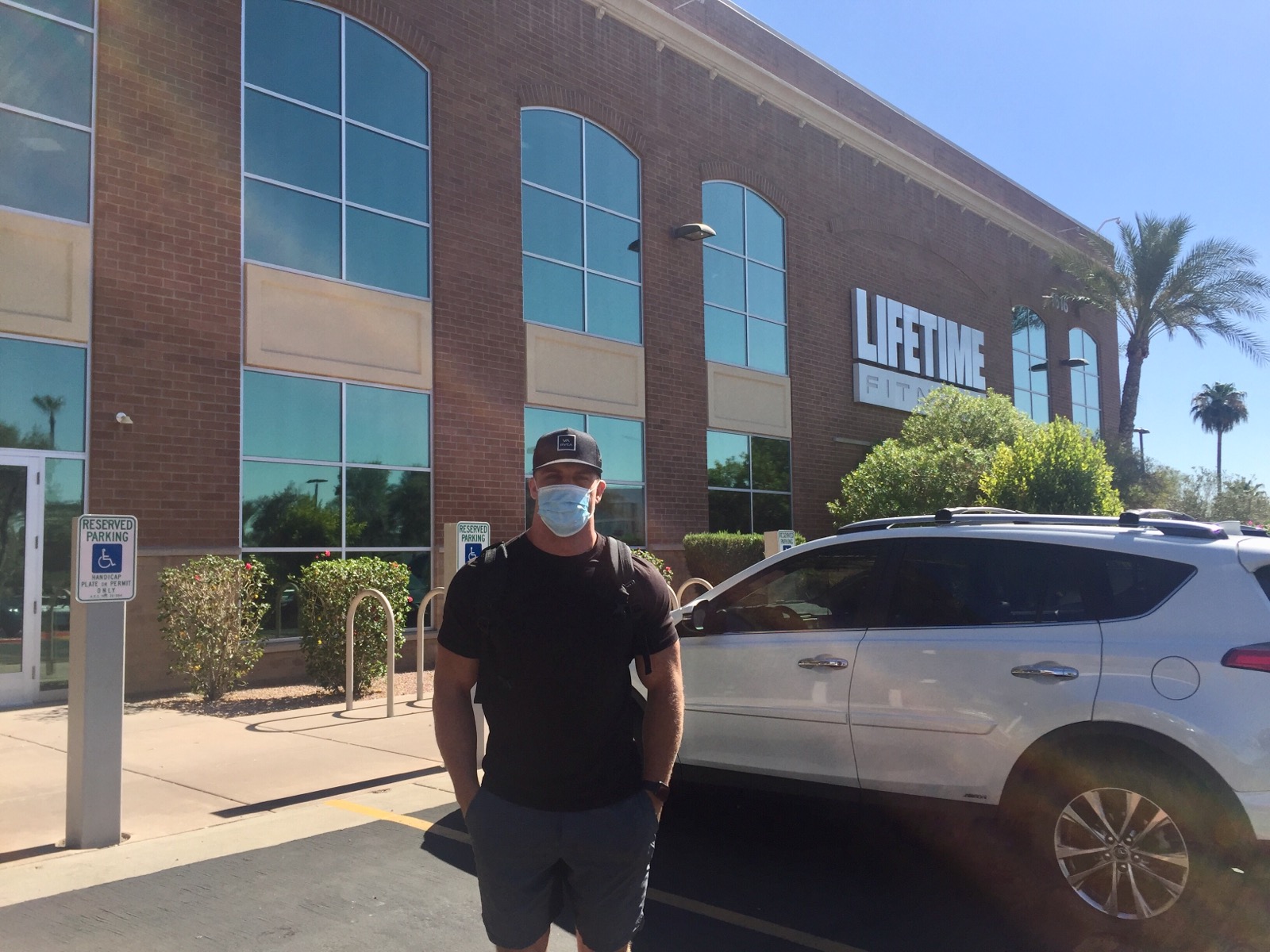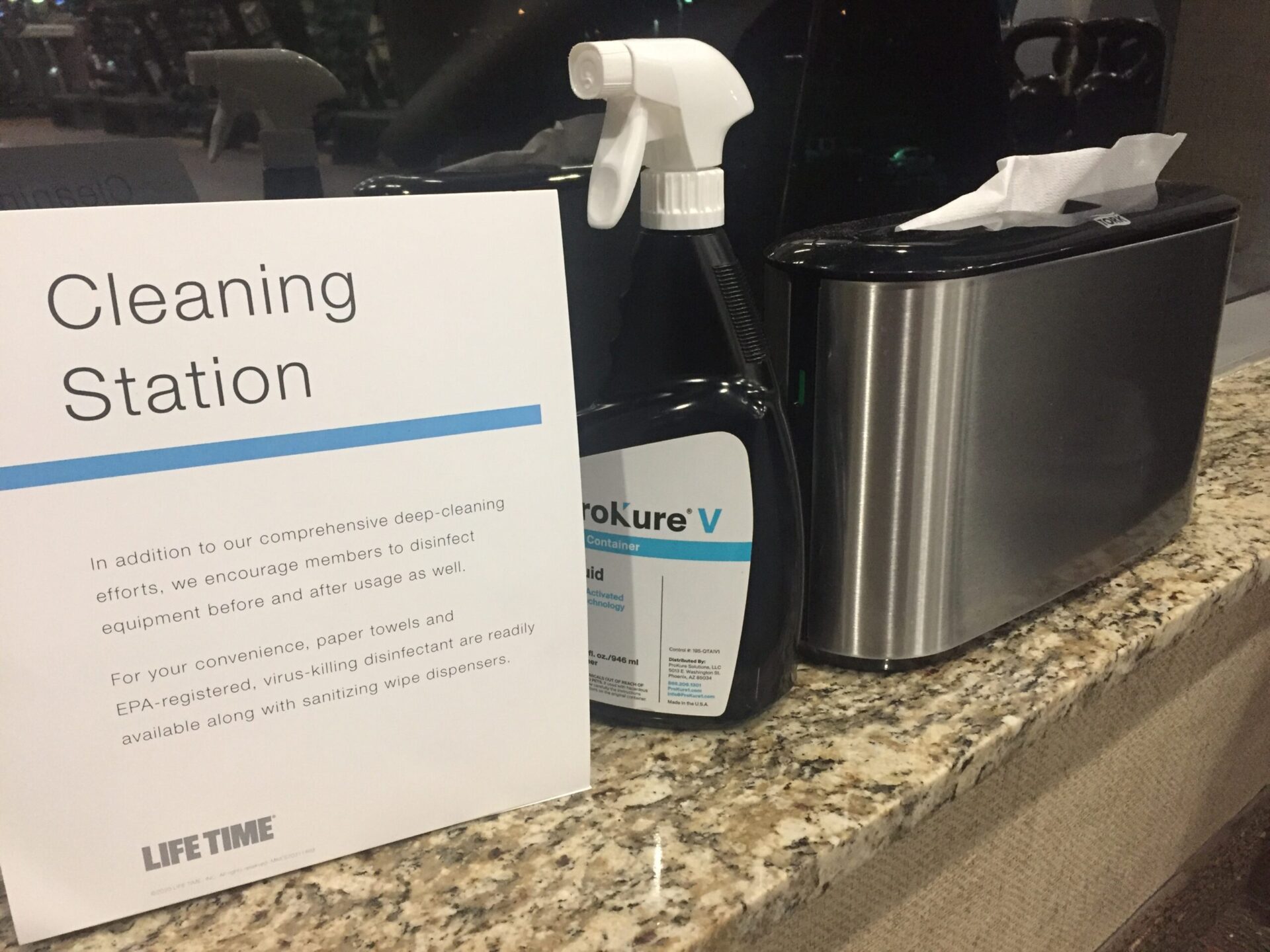
By Joyce Coronel
A July 7 ruling from a Maricopa County Superior Court judge has forced the closure of gyms that had defied Gov. Ducey’s June 29 executive order. Ducey’s order closed gyms and bars through July 27.
Gerry Lee, owner of MegaFit, said the governor’s order was a crushing blow but he obeyed it.
“My business was coming back and we were gaining new clients,” Lee “We shut down and cancelled classes. It’s definitely a financial impact on me.
“I’m not happy about it.”
The small-scale gym offers a combination of Pilates and strength conditioning courses. In the past, many members attended classes after dropping off children at school in the morning. Since the outbreak of the pandemic and the closure of schools, it’s been a rocky road for businesses like MegaFit. With the executive order shuttering his business yet
again, Lee said he’s complying but doesn’t agree with the governor’s move.
“I’m just not sure where the data is that says gyms and fitness centers are one of the major causes of the increase,” Lee said.

And while larger gyms like LA Fitness and EoS Fitness have locked their doors through the end of the month, two larger clubs in Tempe refused—at least initially.
Tom Hatten, founder and CEO of Mountainside Fitness that operates 18 clubs in the Valley, including one in Tempe, called the governor’s order “arbitrary” and until the July 7 ruling said he would not shutter his business. He filed suit.
“If the governor is serious about what is going on, then I say, ‘Governor Ducey, close everything. Don’t choose. Don’t make an arbitrary decision on what you think will look good to the media,'” Hatten said at a press conference.
Natalie Bushaw, senior director of public relations for Life Time, said while the company wasn’t formally joining Hatten’s lawsuit, “we are in support of it.”
The 120,000 square-foot, upscale club in South Tempe boasts an extensive workout area as well as a hair salon, café, rock-climbing wall, basketball court, children’s center and an indoor/outdoor pool among other amenities.
“Our hope is to continue serving our members and keeping our team members working with as little impact as possible,” Bushaw said. While initially shutting down its fitness area June 29, the club reopened its fitness area until finally closing it July 3.
The pandemic led to Life Time’s first closure March 16. It reopened May 18 but after just six weeks, Ducey issued another executive order aimed at closing gyms. Across Arizona, Life Time employs a staff of 1,500 and has approximately 40,000 members.
Doors remain open at Life Time
A letter to Dr. Cara Christ, director of Arizona Department of Health Services, is posted on the front door of Life Time attesting to the facility’s compliance with guidance issued by Arizona’s DHS related to business operations during the pandemic. Members are asked to
wear masks and there’s a temperature check of patrons at the door. Cleaning stations throughout the club provide pre-moistened wipes, a spray cleaner, paper towels and hand sanitizer. Every other machine in the cardio area is disabled, ensuring social distancing while workouts take place. It still wasn’t enough to convince Ducey’s staff to allow the area to remain open.

Bushaw said governments should work with industries to develop safety protocols to conduct business.
“We believe that health clubs and gyms can operate more safely than any other business and, because our customers are members, we’re able to ensure everyone understands their role in upholding safety measures,” Bushaw said.
“Plus, contact tracing can be performed, where needed, because every member visit is recorded. Other retailers and places consumers may visit cannot do this, yet they remain unaffected by these revised restrictions.”
Rick Van Grouw is a member at Life Time and says he exercises at the facility twice daily. The former professional body builder is hoping to become a U.S. Navy SEAL and, as such, he’s training as an endurance athlete, putting himself through rigorous workouts aimed at helping him join the elite special operations force. Van Grouw said he considers the service Life Time provides essential. The pools are still open for his training regimen.
“As far as things that are essential and that we need, not only for our physical health, it’s so important for our mental health,” Van Grouw said. “Some people, their therapy is here and it’s more important than people realize when they just shut it down.”
He said he trusts Life Time because “they’ve been doing a great job following protocols, making sure you’ve got a mask on if you’re six feet or not from somebody. That’s a huge reason why I trust this place.
“I respect Ducey’s decisions to an extent but I think as far as staying healthy, this place is some people’s home for their mind and their bodies.”
Physician weighs in
Not all gym rats concur. Ed Hardiman is a West Chandler resident and internal medicine physician. Prior to the outbreak of COVID-19, he frequented another Tempe gym three times a week. That facility is now closed in compliance with Ducey’s order. An employee
who had served there for three decades was let go, Hardiman said.

“As a physician and seeing the exponential growth in coronavirus patients and seeing how sick they are and watching them die—I had a patient die this morning— including young people critically ill, I really feel we need to do whatever we can to slow the spread or eliminate the spread.
“As a society, we have to make hard choices,” Hardiman said.
He expects the pandemic to continue for about a year and says he’s only been to the gym once since March. While acknowledging the devastating economic impact on business
owners and those put out of work by the shutdown, he says the virus could potentially kill thousands in Arizona if it isn’t contained. “People have to have a livelihood but on the other hand, we have to slow the spread as much as possible,” Hardiman said.
“I’ve been practicing 30 years I’ve never seen anything like this where half of our patients have an infectious disease. We haven’t had anything even remotely similar to this,” Hardiman said.
“What’s happening is, as the hospitals fill up and the system is strained, people will not get good medical care.
”Being around groups of other people increases the risk of people coming down with the virus, Hardiman said, and in spite of the good faith efforts of gym management, it may not be enough.
“If everyone wears masks in the gym, it may cut down on 95 percent of transmission, but, to me, it’s not a risk worth taking because it’s an activity that’s not necessary.”
Lise Kuecker, founder of Studio Grow, a boutique fitness consulting firm, said she questions the suspicion leveled at health clubs. Like Mountainside’s Hatten, she wonders why gyms are being singled out.
“Most health clubs and people in the fitness industry in general, not just boutique fitness studios, have gone above and beyond what the call to action has been,” Kuecker said. ”They’ve actually solidified a very safe environment that we’re not seeing in most retail.”
She pointed to creative solutions gyms have come up with, such as modifying ventilation systems. Life Time, for example, says it has increased the outside air circulation and adjusted ventilation rates.
“I think anyone who is providing a safe and secure service right now shouldn’t be shut down. The key is if it’s being safely done,” Kuecker said.
As safety-minded as Hardiman is, he says he thinks managing the COVID-19 crisis could have been carried out better though he wouldn’t want to be in Ducey’s shoes. The economic devastation wreaked by the shutdown is real. The forced closure of restaurants, theaters, bars and gyms in March may have been premature, he says, before the numbers really surged in Arizona. That, in combination with a quick reopening
in May, didn’t help matters. Many have lost their businesses, jobs and even lives.
“If we had a group of experts that sat down and really came up with guidelines and enforced the guidelines, I’m sure that you could come up with scenarios where a gym could stay open,” Hardiman said.
“We are in a pandemic and the hospital system is going to collapse if we don’t get this under control. We are going to lose a lot of lives unnecessarily.”
Tempe police visited Life Time July 1 while it was still open in defiance of the governor’s order. A statement from Det. Natalie Barela to Wrangler News declared the department is committed to promoting public health and reducing harm in the community.
“As prescribed in the governor’s executive orders, educational contacts with the opportunity to remedy and gain voluntary compliance are preferred. If the business or individual continues to fail to comply with the governor’s orders or the mayor’s proclamation, then
citations may be issued,” Barela’s statement reads.
A July 3 letter to Life Time and Mountainside Fitness from ADHS director Christ states that gyms “pose a serious threat to public health” and should remain closed through July 27. The letter went on to say that non-compliance would result in civil action seeking
a temporary restraining order as well as preliminary, injunctive and declaratory relief. At press time, Life Time’s fitness floor and studios remained closed but other amenities were open. Temperature checks and masks are required for entry to the facility.
Mountainside Fitness, which was open through July 6, shut down July 7 after Maricopa County Superior Court Judge Timothy Thomason ruled that Ducey’s executive order “clearly had a rational basis” and the health club’s lawsuit was not likely to be won.


